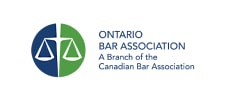***Update as of June 14, 2022
On June 13, 2022, senators on the national security and defence committee voted to eliminate the new standard of “reasonable general concern” outlined in Bill S-7. Instead, the senators replaced the standard with that of “reasonable grounds to suspect”, the most permissible legal standard that currently exists.The Canadian Civil Liberties Association described the amendment as “an excellent step towards better privacy protection, and, concurrently, better protection against discriminatory searches”.
Bill S-7
The Customs Act is amended by adding the following after section 99:
Documents on personal digital device
99.01 (1) At any time up to the time of release or at any time up to the time of exportation, an officer designated under subsection (2) may, in accordance with the regulations, examine documents, including emails, text messages, receipts, photographs or videos, that are stored on a personal digital device that has been imported or is about to be exported and is in the custody or possession of a person if the officer has a reasonable general concern that
- (a) this Act or a regulation made under it has been or might be contravened in respect of one or more of the documents;
- (b) any other Act of Parliament that prohibits, controls or regulates the importation or exportation of goods and is administered or enforced by the officer or any regulation made under that Act has been or might be contravened in respect of one or more of the documents; or
- (c) one or more of the documents may afford evidence in respect of a contravention under
- (i) this Act or a regulation made under it, or
- (ii) any other Act of Parliament that prohibits, controls or regulates the importation or exportation of goods and is administered or enforced by the officer or any regulation made under that Act.
Bill S-7 would also amend s.110 of the Act, which would allow border officers to make electronic copies of the information stored on your personal device.
R v Canfield and R v Townsend:
Bill S-7 was introduced in response to the October 2020 ruling in R v Canfield and R v Townsend by the Court of Appeal of Alberta. The two cases were heard together, and the Court found that that the examination of the content of personal digital devices by the Canadian Border Services Agency is unconstitutional under the Customs Act, as the Act imposes no limits on such examinations. As such, the Government of Canada is now trying to impose limits by implementing a novel legal standard.
Criticism of Bill S-7:
Many civil liberties groups have criticized this new standard as too low and permissive. Most travellers carry personal digital devices, such as cell phones, I-Pads and laptops, which hold an incredible amount of personal information, including things like health and financial records. As such, officers should be required to meet a high standard to justify this type of privacy invasion.
On top of this, the current legal standard for physical mail to be searched at the border is “reasonable grounds to suspect” that a violation has occurred. “Reasonable grounds to suspect” is a higher threshold than “reasonable general concern”.
Public Safety Minister Marco Mendicino defended the proposed legislation by explaining that a less restrictive legal standard is required at the border. He stated that the new standard was a “unique threshold for a unique situation”, as many try to import and export prohibited goods.
However, human rights activists are always weary when new legal standards are created by the legislative branch of government. As it’s a new legal standard, it is very difficult to determine exactly what it means. Right now, “reasonable grounds to suspect” is the lowest legal standard recognized. As such, we don’t know how low a standard “reasonable general concern” is, and it is currently up for interpretation.
Although Minister Mendicino stated that the new threshold “does not give officers carte blanche to examine personal digital devices”, if Bill S-7 passes, it will likely result in decades of legal challenges being fought in courts to figure out exactly what this new standard is. If the new standard is not clearly defined, or is implemented in arbitrary ways, it could mean the new standard will be found to be unconstitutional as well.























